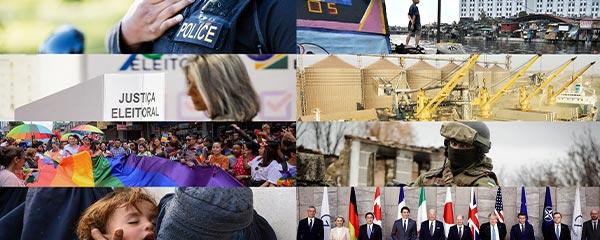Story Highlights
- 79% of residents are satisfied with their personal freedom
- But, they are falling behind with the cost of basic necessities
- Majority struggled at times to afford food in past year
WASHINGTON, D.C. -- In the run-up to Myanmar's first free election in 25 years on Nov. 8, more residents than ever in the once-isolated country reported being satisfied with their personal freedom. In March 2015, nearly eight in 10 residents (79%) said they are satisfied with the freedom they have to choose what they do with their lives, considerably higher than previous measures in 2012 and 2013.

Such a high level of satisfaction with personal freedom is remarkable for a nation that shook off decades of oppressive military rule and isolation from the rest of the world only a few years ago. In fact, as recently as 2011, the country had banned international websites. Since then, Myanmar, also known as Burma, has embarked on a series of political and economic reforms that set the nation on the path to a freer society and opened it to trade with the West. These reforms, and the move toward a civilian-led government, made the recent election possible.

Job Outlook Improving in Myanmar
Myanmar residents' increasing optimism about job prospects in their areas at least somewhat reflects the opening of their economy. More than half (53%) say now is a good time to find a job, up markedly from levels in previous years. This outlook is present in both urban (58%) and rural (51%) areas in 2015 -- even though poverty rates skew considerably higher in rural Myanmar, where subsistence farming and part-time work have historically provided the bulk of household income.
Myanmar residents' outlook for job prospects is even rosier than views in established markets in the Southeast Asia region, such as in Singapore (45%) and Vietnam (42%).

Residents of Myanmar have also grown more satisfied with multiple aspects of their local infrastructure since 2012. Seventy-nine percent are satisfied with the availability of public transportation, and 72% are satisfied with roads and highways. Access to the Internet is also making great leaps forward in the country. Although it is not high by global standards, reported home Internet access has increased dramatically, from 3% in 2012 to 31% in 2015.

Still, Many in Myanmar Struggle to Afford the Basics
Although much of the economic news in Myanmar is positive, many are struggling to provide food and shelter for their families. More than half (54%) say there have been times in the past year when they did not have enough money to buy food, up from 38% in 2014. And nearly half (49%) did not have enough money to provide adequate housing for their families in 2015, compared with 39% the previous year.

Bottom Line
The National League for Democracy's landslide victory has given much hope to the residents of Myanmar that their personal freedoms will continue to increase -- as well as their economic circumstances as domestic and foreign investors begin to have confidence in Myanmar's business environment. When the new leaders take office in January 2016, they will have to play rapid catch-up to expand an economy that is still suffering from decades of global isolation and to ease the burden for the large numbers of residents who are struggling to feed and house their families.
These data are available in .
Survey Methods
Results are based on face-to-face interviews with 1,020 adults, aged 15 and older, conducted March 19-April 5, 2015, in Myanmar. Chin, Kayah and Kachin states were excluded. The excluded areas represent less than 5% of the population. For results based on the total sample of national adults, the margin of sampling error is ±3.5 percentage points at the 95% confidence level. All reported margins of sampling error include computed design effects for weighting.
For more complete methodology and specific survey dates, please review .
Learn more about how the works.
